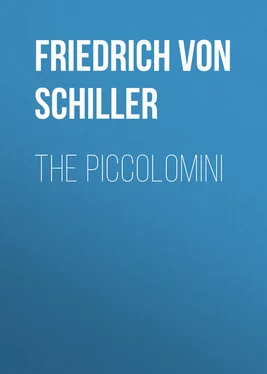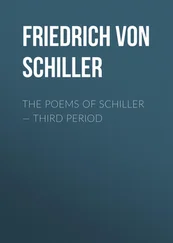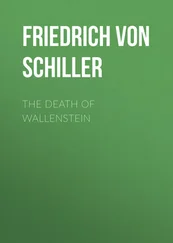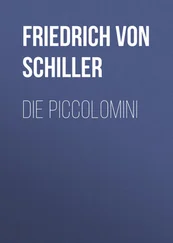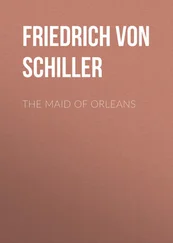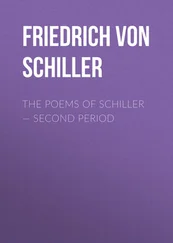Friedrich Schiller - The Piccolomini
Здесь есть возможность читать онлайн «Friedrich Schiller - The Piccolomini» — ознакомительный отрывок электронной книги совершенно бесплатно, а после прочтения отрывка купить полную версию. В некоторых случаях можно слушать аудио, скачать через торрент в формате fb2 и присутствует краткое содержание. Жанр: literature_18, Драматургия, foreign_antique, foreign_prose, foreign_dramaturgy, на английском языке. Описание произведения, (предисловие) а так же отзывы посетителей доступны на портале библиотеки ЛибКат.
- Название:The Piccolomini
- Автор:
- Жанр:
- Год:неизвестен
- ISBN:нет данных
- Рейтинг книги:3 / 5. Голосов: 1
-
Избранное:Добавить в избранное
- Отзывы:
-
Ваша оценка:
- 60
- 1
- 2
- 3
- 4
- 5
The Piccolomini: краткое содержание, описание и аннотация
Предлагаем к чтению аннотацию, описание, краткое содержание или предисловие (зависит от того, что написал сам автор книги «The Piccolomini»). Если вы не нашли необходимую информацию о книге — напишите в комментариях, мы постараемся отыскать её.
The Piccolomini — читать онлайн ознакомительный отрывок
Ниже представлен текст книги, разбитый по страницам. Система сохранения места последней прочитанной страницы, позволяет с удобством читать онлайн бесплатно книгу «The Piccolomini», без необходимости каждый раз заново искать на чём Вы остановились. Поставьте закладку, и сможете в любой момент перейти на страницу, на которой закончили чтение.
Интервал:
Закладка:
You lead your son into the secret?
No!
What! and not warn him either, what bad hands
His lot has placed him in?
I must perforce
Leave him in wardship to his innocence.
His young and open soul – dissimulation
Is foreign to its habits! Ignorance
Alone can keep alive the cheerful air,
The unembarrassed sense and light free spirit,
That makes the duke secure.
My honored friend! most highly do I deem
Of Colonel Piccolomini – yet – if —
Reflect a little —
I must venture it.
Hush! There he comes!
SCENE IV
MAX. PICCOLOMINI, OCTAVIO PICCOLOMINI, QUESTENBERG.
Ha! there he is himself. Welcome, my father!
[He embraces his father. As he turns round, he observes
QUESTENBERG, and draws back with a cold and reserved air.
You are engaged, I see. I'll not disturb you.
How, Max.? Look closer at this visitor.
Attention, Max., an old friend merits – reverence
Belongs of right to the envoy of your sovereign.
Von Questenberg! – welcome – if you bring with you
Aught good to our headquarters.
Nay, draw not
Your hand away, Count Piccolimini!
Not on my own account alone I seized it,
And nothing common will I say therewith.
[Taking the hands of both.
Octavio – Max. Piccolomini!
O savior names, and full of happy omen!
Ne'er will her prosperous genius turn from Austria,
While two such stars, with blessed influences
Beaming protection, shine above her hosts.
Heh! Noble minister! You miss your part.
You come not here to act a panegyric.
You're sent, I know, to find fault and to scold us —
I must not be beforehand with my comrades.
He comes from court, where people are not quite
So well contented with the duke as here.
What now have they contrived to find out in him?
That he alone determines for himself
What he himself alone doth understand!
Well, therein he does right, and will persist in't
Heaven never meant him for that passive thing
That can be struck and hammered out to suit
Another's taste and fancy. He'll not dance
To every tune of every minister.
It goes against his nature – he can't do it,
He is possessed by a commanding spirit,
And his, too, is the station of command.
And well for us it is so! There exist
Few fit to rule themselves, but few that use
Their intellects intelligently. Then
Well for the whole, if there be found a man
Who makes himself what nature destined him,
The pause, the central point, to thousand thousands
Stands fixed and stately, like a firm-built column,
Where all may press with joy and confidence —
Now such a man is Wallenstein; and if
Another better suits the court – no other
But such a one as he can serve the army.
The army? Doubtless!
What delight to observe
How he incites and strengthens all around him,
Infusing life and vigor. Every power
Seems as it were redoubled by his presence
He draws forth every latent energy,
Showing to each his own peculiar talent,
Yet leaving all to be what nature made them,
And watching only that they be naught else
In the right place and time; and he has skill
To mould the power's of all to his own end.
But who denies his knowledge of mankind,
And skill to use it? Our complaint is this:
That in the master he forgets the servant,
As if he claimed by birth his present honors.
And does he not so? Is he not endowed
With every gift and power to carry out
The high intents of nature, and to win
A ruler's station by a ruler's talent?
So then it seems to rest with him alone
What is the worth of all mankind beside!
Uncommon men require no common trust;
Give him but scope and he will set the bounds.
The proof is yet to come.
Thus are ye ever.
Ye shrink from every thing of depth, and think
Yourselves are only safe while ye're in shallows.
'Twere best to yield with a good grace, my friend;
Of him there you'll make nothing.
In their fear
They call a spirit up, and when he comes,
Straight their flesh creeps and quivers, and they dread him
More than the ills for which they called him up.
The uncommon, the sublime, must seem and be
Like things of every day. But in the field,
Ay, there the Present Being makes itself felt.
The personal must command, the actual eye
Examine. If to be the chieftain asks
All that is great in nature, let it be
Likewise his privilege to move and act
In all the correspondences of greatness.
The oracle within him, that which lives,
He must invoke and question – not dead books,
Not ordinances, not mould-rotted papers.
My son! of those old narrow ordinances
Let us not hold too lightly. They are weights
Of priceless value, which oppressed mankind,
Tied to the volatile will of their oppressors.
For always formidable was the League
And partnership of free power with free will.
The way of ancient ordinance, though it winds,
Is yet no devious path. Straight forward goes
The lightning's path, and straight the fearful path
Of the cannon-ball. Direct it flies, and rapid;
Shattering that it may reach, and shattering what it reaches,
My son, the road the human being travels,
That, on which blessing comes and goes, doth follow
The river's course, the valley's playful windings,
Curves round the cornfield and the hill of vines,
Honoring the holy bounds of property!
And thus secure, though late, leads to its end.
Oh, hear your father, noble youth! hear him
Who is at once the hero and the man.
My son, the nursling of the camp spoke in thee!
A war of fifteen years
Hath been thy education and thy school.
Peace hast thou never witnessed! There exists
An higher than the warrior's excellence.
In war itself war is no ultimate purpose,
The vast and sudden deeds of violence,
Adventures wild, and wonders of the moment,
These are not they, my son, that generate
The calm, the blissful, and the enduring mighty!
Lo there! the soldier, rapid architect!
Builds his light town of canvas, and at once
The whole scene moves and bustles momently.
With arms, and neighing steeds, and mirth and quarrel
The motley market fills; the roads, the streams
Are crowded with new freights; trade stirs and hurries,
But on some morrow morn, all suddenly,
The tents drop down, the horde renews its march.
Dreary, and solitary as a churchyard;
The meadow and down-trodden seed-plot lie,
And the year's harvest is gone utterly.
Интервал:
Закладка:
Похожие книги на «The Piccolomini»
Представляем Вашему вниманию похожие книги на «The Piccolomini» списком для выбора. Мы отобрали схожую по названию и смыслу литературу в надежде предоставить читателям больше вариантов отыскать новые, интересные, ещё непрочитанные произведения.
Обсуждение, отзывы о книге «The Piccolomini» и просто собственные мнения читателей. Оставьте ваши комментарии, напишите, что Вы думаете о произведении, его смысле или главных героях. Укажите что конкретно понравилось, а что нет, и почему Вы так считаете.
